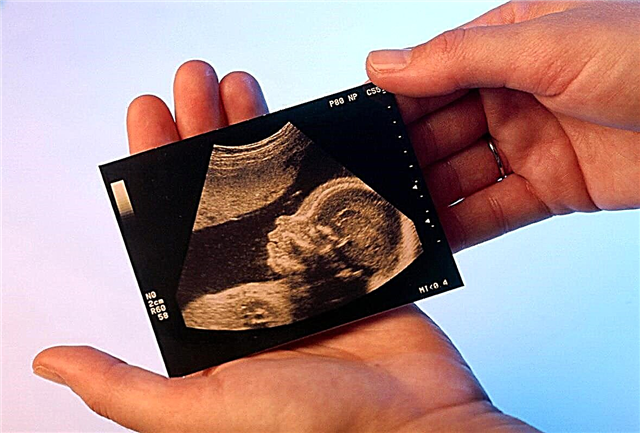Babies in the first year of life gain weight very quickly and need a lot of food. Their digestive systems don't always deal with it easily. Therefore, in the first months of life, babies often spit up. Usually this is a small amount of milk, but sometimes the baby spits up a curdled mass, which indicates that the milk has already been exposed to gastric juice. Very rarely, regurgitation is a symptom of the disease.

The child spit up the curd
Features of the baby's digestive system
Regurgitation of infants is called regurgitation. It is considered normal due to the nature of the infant's digestive system, which is in the process of development.
Food travels from the mouth to the stomach through the esophagus. At the lower end of the esophagus is a muscle ring called the lower esophageal sphincter. It ensures that food stays in the stomach. However, in young children, the sphincter does not yet function properly and the stomach is relatively small. Therefore, food can be pushed back into the esophagus and then into the mouth.

Esophagus and stomach of the baby
Causes of cheesy belching
Most often, the baby spits up curd for the following reasons:
- If the baby has received an excess amount of food, he may then regurgitate some of it. It is especially difficult to control how much a baby eats when breastfeeding;
- Swallowing air together with milk, which is likely with very active sucking, improper positioning of the bottle with the formula, or when the baby is loosely taking the breast nipple into the mouth. An air bubble formed in the stomach displaces its contents.

Correct attachment to the breast
Important! To prevent the baby from sucking too actively, it is necessary to observe the intervals between feedings, not allowing the baby to get very hungry.
- Excessive activity after eating. Within half an hour after eating, you need to provide the baby with peace. Overly active games, gymnastics with a baby, bathing can lead to regurgitation of cottage cheese in infants;
- External pressure in the tummy area. For example, a child is swaddled tightly, or his diaper is tightly buttoned. Pressure can also build up inside the abdomen due to flatulence;
- Improper selection of formula milk can cause digestive problems, including regurgitation in newborns after feeding with cottage cheese.
What is the norm
The norm is to regurgitate twice daily in a half-hour interval at the end of feeding. Saliva may be present in milk or curd discharge, and its smell may be sour. Wherein:
- weight gain has a positive trend;
- the baby, when spitting up a curdled mass, remains calm and cheerful, he has a good appetite;
- excretion of urine occurs up to 10 times daily;
- the volume of gastric secretions does not exceed 2 tablespoons.
If a child can spit up a lot and does it often, he has poor sleep, rare urine flow, and the weight does not increase, this is out of the normal range.
Important! When a baby spits up milk or cottage cheese during hours not associated with feeding, and bile or traces of blood are observed in the secreted contents, it is necessary to immediately consult a specialist.
Why is spitting up with curd dangerous
The risk of any regurgitation lies in the fact that the baby is able to choke on the secreted masses, therefore, the baby should not be placed on his back at the end of feeding, he can only be laid on his side.

The child lies on its side
Important! With frequent and profuse regurgitation, the backward mass of the stomach can damage the esophagus or cause respiratory problems if it enters the lungs.
Sometimes the baby spits up cottage cheese due to pathological reasons:
- Gastrointestinal tract infections. In addition to fever, diarrhea and feeling unwell, they can be accompanied by cheesy belching with the presence of mucus in it;
- CNS pathologies. With these diseases, the child spits up curd like a fountain, does not sleep well, throws his head back;
- Pyloric stenosis (narrowing of the passageway between the stomach and the duodenum), which also includes cheesy belching and weight loss.
How to reduce curdled belching
Parents can reduce the amount of belching and reduce its frequency by doing the following:
- Try to prevent your baby from getting too much food. Better he should eat in small portions, but more often;
- In order for the air to escape, the child must be held vertically at the end of feeding for 5 to 30 minutes;

Raising the baby vertically
- The position of the baby, when he takes food, should not be horizontal, it is necessary to raise the baby's upper body at an angle of about 45º;
- Make sure that the baby tightly covers not only the breast nipple itself, but also the surrounding area;
- When feeding from a bottle, it is necessary to make a hole in the nipple small enough so that the milk mixture does not flow out too freely and quickly;
- If the child often spits up curd, active games are not allowed for half an hour or even more after the end of feeding, there is no need to bathe the baby, perform massage and gymnastics. On the contrary, massage treatments and gymnastics are very beneficial if done shortly before the next feed. They promote the release of gases and strengthen the abdominal muscles;
- Do not press the diapers tightly or swaddle the baby tightly after eating;
- When frequent belching is associated with a reaction to formula milk, you can try to replace it or use special antireflux drugs;
- The baby must breathe well with the nose to avoid air entrapment in the mouth, therefore, you need to take care of the cleanliness of the nasal passages.
When to see a doctor
When a child eats well and his general condition is not alarming, health problems are unlikely, even if he spits up from time to time. Parents should be alert and consult a doctor in the following cases:
- regurgitation occurs with a high frequency, the baby's skin is noticeably pale, he does not recover and grows poorly;
- there is pain in the abdomen, the baby is worried, crying and arching his back;
- the child coughs and has trouble breathing, in which case the esophagus may be irritated by acid from the stomach;
- belching is not associated with food, can occur arbitrarily;
- instead of regurgitation, vomiting occurs, sometimes in a fountain;
- frequent regurgitation is accompanied by diarrhea, while children lose a lot of fluid, dehydration may occur.
Important! In all cases, you need to figure out why, after feeding, the baby spits up curd, whether this is due to the physiological characteristics of his body and fits into the norm, or the development of pathology is possible.
Most often, parents should not worry about regurgitation of a curdled mass. As the baby grows and his digestive tract develops, they will decrease. By 10-12 months only 5 out of 100 children have such problems. However, it is still better to keep these manifestations under control and contact a pediatrician if warning signs appear.



